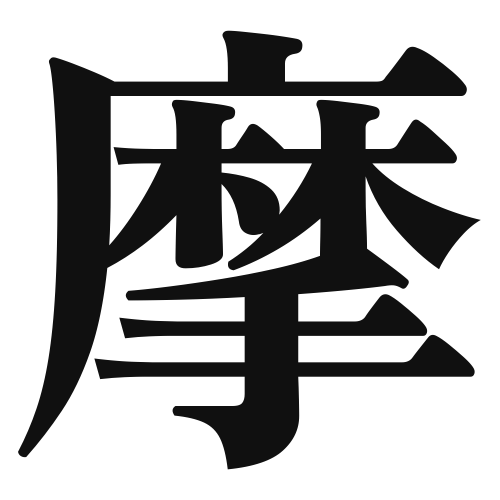1. Overview of Meaning
The kanji “摩” (ma) generally means “to rub” or “to grind.” It conveys the idea of friction or the action of smoothing a surface through contact.
2. Formation and Radical
Formation of the Kanji: The kanji “摩” is a phonetic-ideographic character (形声文字). It combines the meaning of rubbing or grinding with a phonetic component that suggests its pronunciation.
Radical: The radical for “摩” is “石” (ishi), which means “stone.” This indicates a connection to hard surfaces that can be rubbed or ground.
3. Examples of Usage
Common Words and Phrases: Some frequently used words that include “摩” are:
- 摩擦 (masatsu) – friction
- 摩耗 (mahou) – wear and tear
Example Sentences in Daily Conversation:
- この石を摩擦して、滑らかにしましょう。 (Let’s rub this stone to make it smooth.)
- 摩擦が大きいと、物が壊れることがあります。 (If the friction is too high, things can break.)
4. Synonyms and Antonyms
Similar Kanji: A similar kanji is “擦” (satsu), which also means “to rub” but often implies a lighter or more gentle action compared to “摩.”
Antonyms: An antonym for “摩” could be “滑” (katsu), which means “to slide” or “to glide,” indicating a smooth motion without friction.
5. Cultural and Historical Background
Connection to Japanese Culture: The concept of “摩” is often associated with traditional crafts, such as stone polishing and the creation of smooth surfaces in art and architecture.
Proverbs and Idioms: One common saying is “摩擦を減らす” (masatsu o herasu), which means “to reduce friction,” often used metaphorically to suggest easing conflicts or improving relationships.
